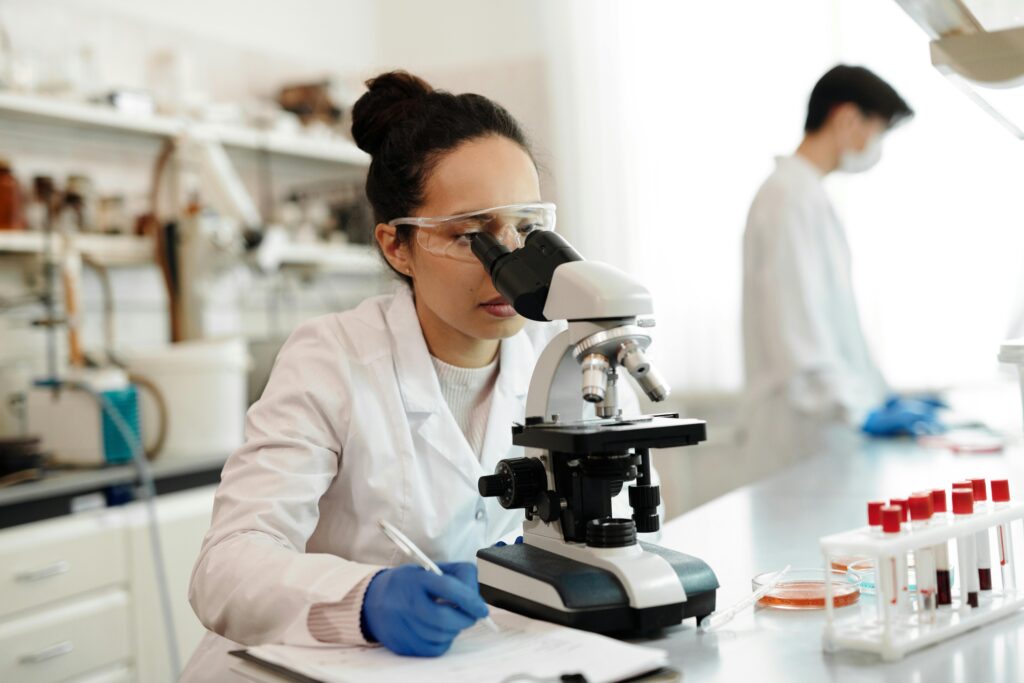Biotechnology Products: An Overview

Biotechnology involves using living organisms, cells, and biological systems to develop biotechnology products that enhance our daily lives. This interdisciplinary field combines biology, chemistry, genetics, and other sciences to create innovative solutions.
Biotechnology, a revolutionary field that harnesses biological processes and systems for various applications, has witnessed unprecedented growth in recent years. From improving crop yields to revolutionizing medicine, the advantages of biotechnology are vast and diverse.
Advantages of Biotechnology
Improved Crop Yields
Biotechnological advancements in agriculture have led to the development of genetically modified (GM) crops that exhibit improved resistance to pests and environmental stress. This has significantly increased crop yields, addressing global food security challenges.
Disease-Resistant Crops
Biotechnology enables the creation of crops resistant to diseases, reducing the need for harmful pesticides. This protects the environment and ensures a more sustainable and resilient agricultural system.
Enhanced Pharmaceuticals
The pharmaceutical industry has benefited immensely from biotechnology, with the production of therapeutic proteins, vaccines, and personalized medicine. Medical biotechnology allows for more efficient drug development, improving treatments for various diseases.
Environmental Biotechnology
Biotechnology plays a crucial role in environmental conservation by offering sustainable solutions. Bioremediation, for example, utilizes microorganisms to clean up pollutants, contributing to the restoration of ecosystems.
Industrial Biotechnology Products
Enzyme Engineering
Enzyme engineering improves farming, medicine, and waste management industries. It uses advanced biotechnology to make enzymes work better in specific jobs.
For instance, they can be used to break down stuff for biofuel production or deal with farm waste. This helps make food in a better way that’s good for the environment and our health. It also saves resources.
Microbial Fermentation
Microbial fermentation is a big deal in biotechnology. It uses tiny organisms to make all kinds of useful stuff, like ethanol and medicine. It’s not just about making products, though. It also helps reduce waste by turning leftover farm produce into valuable products instead of throwing it away.
Synthetic Biology
Synthetic biology is a new field in biotechnology. It uses engineered biological systems to make new materials and chemicals. This can help in medicine and farming.
Scientists can create microorganisms that produce useful molecules for human health and find new ways to use natural materials, such as managing resources.
Bioinformatics Tools
Computational biology is revolutionizing scientific endeavors by enabling intricate predictive modeling. Scientists can accurately predict protein structures and interactions through computational simulations and modeling techniques.
This capability is instrumental in drug discovery processes, where identifying effective compounds relies heavily on understanding molecular interactions.
Moreover, computational models aid researchers in designing synthetic biological systems for various applications, including biofuel production or waste management through biotechnology.
These models allow for efficient optimization before implementation, saving time and resources while maximizing efficacy.
Biotechnology and Genetic Engineering
One of the most significant breakthroughs in biotechnology is gene editing, which allows scientists and genomics companies to modify the DNA of organisms with precision. This technology holds immense potential for treating genetic disorders and creating genetically modified organisms with specific traits.
Therapeutic Cloning
While controversial, cloning is another application of biotechnology that has garnered attention. The ability to create genetically identical organisms has implications for agriculture, medicine, and conservation.
Biotechnology Ethics
Advances in biotechnology raise ethical questions about manipulating life forms. Striking a balance between innovation and ethical considerations is crucial for responsible biotech practices.
Future Prospects
The future of biotechnology holds exciting possibilities, including the integration of artificial intelligence, nanotechnology, and synthetic biology. These emerging trends are poised to redefine the capabilities of biotechnology.
Potential Breakthroughs
Researchers are actively exploring groundbreaking possibilities, such as CRISPR-based therapies, organ printing, and the development of biohybrid materials. These potential breakthroughs could revolutionize various industries and further propel biotechnology into the future.
Conclusion
Biotechnology is a powerful force driving innovation across multiple domains. Its advantages in agriculture, medicine, and environmental conservation are already evident, and continuous advancements promise an even more transformative future.
As we navigate the complexities of the 21st century, biotechnology emerges as a key player in addressing global challenges. Its role in shaping a sustainable and technologically advanced future cannot be overstated.
Frequently Asked Questions?
Is biotechnology innovation only about genetic modification?
Biotechnology encompasses various applications beyond genetic modification, including biotechnology in medicine, agriculture, and environmental conservation.
What are the ethical concerns surrounding biotechnology research and development?
Ethical considerations in biotechnology include issues related to gene editing, cloning, and the potential misuse of advanced technologies.
How does biotechnology in agriculture contribute to sustainable farming?
Biotechnology enhances agriculture’s sustainability by developing crops resistant to pests, diseases, and environmental stressors.
What role does biotechnology play in personalized medicine?
An example of biotechnology in medicine is the development of personalized medicine, which involves tailoring treatments based on an individual’s genetic makeup.
Are there risks associated with certain types of biotechnology?
While biotechnology offers numerous benefits, there are concerns about potential risks, including unintended consequences and ethical dilemmas.
If you’re involved in biotechnology innovation and want to tap into the Gulf market, please send us your ideas and suggestions.
